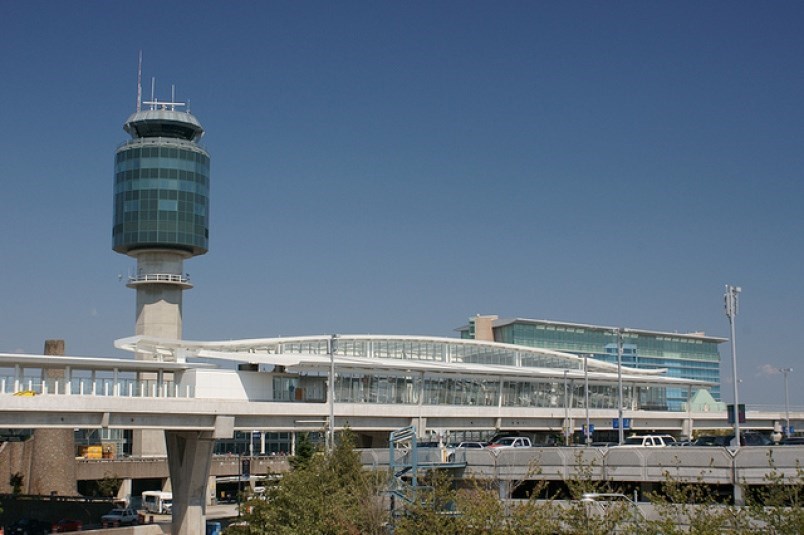Vancouver International Airport says it’s aiming to eliminate carbon emissions by 2030 – two decades ahead of the 2050 goal announced last year.
Last year, the airport authority's emissions totalled 9,258, a drop of just 5 per cent from 2019. Marion Town, YVR’s director of climate and environment, explained that even with fewer passengers, the natural gas that heats “the largest building in B.C.” remains the airport’s biggest source of emissions.
While emissions from flights don’t count towards YVR’s emissions, said Town, that’s still something the airport authority tracks. In 2020, she said, emissions from flights totaled 171,632 tonnes – down by about 50 per cent from 2019.
Since the pandemic – which saw airport traffic around the globe drastically drop – YVR has been re-evaluating its operations and working to build a foundation from which to “leap forward” once travel begins to pick up, said Town.
“Part of that leap forward includes taking the time to understand what it means to operate our airport during a pandemic before designing strategies to restart in ways that not only enable us to thrive in a post-pandemic world, but also shape a greener and more resilient future,” she said in an email to the Richmond News.
“We felt it was our time to take responsibility to do our part and still be financially sustainable before offering assistance to the aviation industry.”
Globally, the airline industry emitted around 915 million tonnes of CO2 in 2019 – just over two per cent of man-made carbon emissions, according to the International Air Transport Association.
YVR’s road to net zero will start slowly and scale up over the next decade, said Town, aligning with the return of air passengers. The airport plans, for example, to electrify its entire light-duty vehicle fleet along with as much of its heavy fleet as possible.
Meanwhile, YVR will be looking to improve the energy efficiency of terminal lighting and HVAC systems and switch to using renewable natural gas.
“It’s a time for real innovation and we are working with partners like BC Hydro and Fortis to be creative, efficient and cost effective,” said Town.
The airport did become carbon neutral in 2020, said Town, by reducing emissions and offsetting them by investing in a 100-year-forest project in the east Kootenays through Vancouver-based Offsetters.
“With a target to be net zero by 2030, we will have to reduce all of our emissions to the lowest possible point and for what little remains, we will need to invest in carbon removal projects,” Town said.



